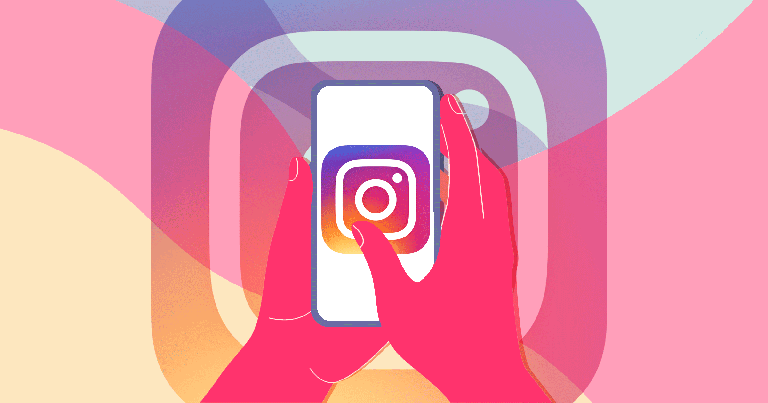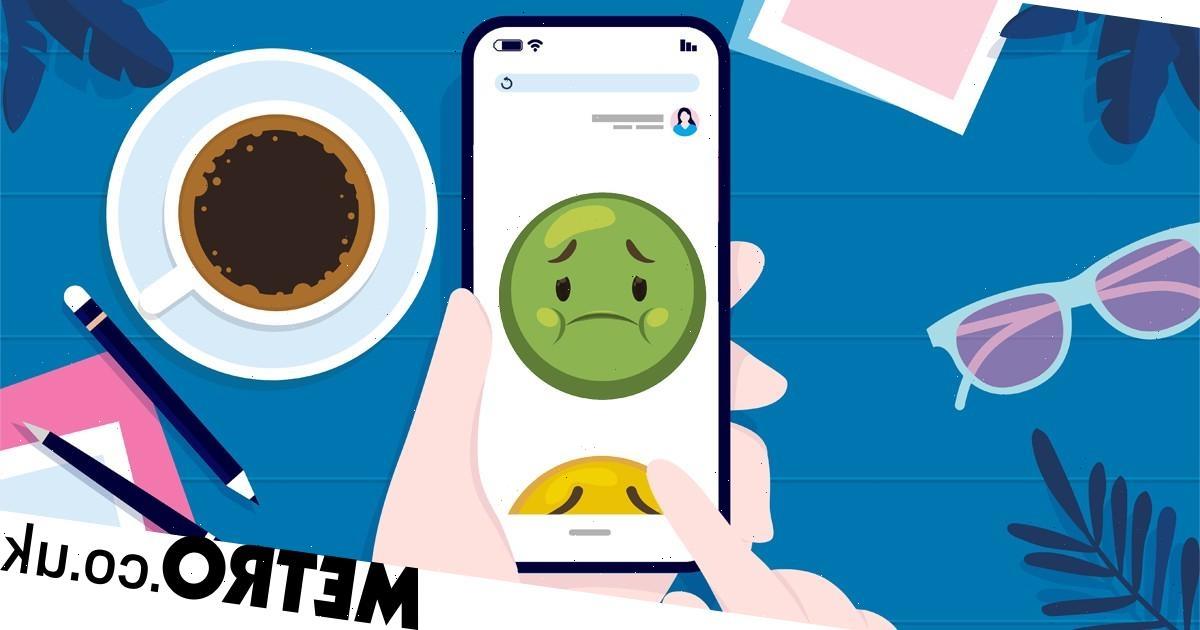Backache, headaches, tired eyes, trouble falling asleep… sound familiar? Your screen might be to blame.
We’re officially a nation addicted to screens, with some reports suggesting we spend a whopping 34 years of our lives staring at our phones, laptops, and tablets.
Worryingly, 40% of adults in the UK admit they check their phones within the first five minutes of waking up… that’s before even going to the bathroom.
The pandemic hasn’t helped matters.
‘Since working from home I’m staring at a screen more than ever,’ Katrina, from London, tells Metro.co.uk. ‘When I was in the office, I would have meetings face to face away from my computer, I took breaks away from my desk and I left on time to make sure I caught my train home.
‘Now my entire working day is online and I find myself spending longer and longer staring at a screen, long after I should have finished for the day.’
Too much screen time comes with complications.
‘It takes me ages to switch off after work,’ notes Katrina. ‘Sometimes I feel sluggish and achy in the evenings and although I feel exhausted, I have trouble falling asleep. I don’t remember feeling this bad before the pandemic.’
While many of us are familiar with the old saying that staring at the TV for too long will turn your eyes square, this might not be too far from the truth. While your eyes won’t actually change shape, using screens for long periods of time can make your eyes feel tired and strained. This can cause issues such as headaches, dry or watery eyes, blurred or double vision and sensitivity to light.

And It’s not just our eyes that are affected. Leanne Antoine, a physiotherapist, tells Metro.co.uk: ‘Repeated prolonged positions, such as being at a computer, can contribute to problems with the neck and back, especially if the set-up isn’t quite right.’
During the lockdown, Leanne saw an increase in patients with pain caused by looking at screens for too long.
‘Neck pain seemed to be the most prevalent problem’ she explains. ‘At the time, people were making do with the resources they had, like using their dining room table and chairs, and often these weren’t fit for purpose.
‘Many people were also spending increased amounts of time at their screen because they could and because they didn’t have much else to do.’
Too much screen time can affect both the amount and quality of your sleep. Doomscrolling before bed can make it hard to switch off and fall asleep naturally, which in turn can lead to further issues. Poor sleep can be a trigger for depression, anxiety, diabetes, high blood pressure, and heart disease.
If you’re feeling disconnected and out of touch then, you guessed it, your screen could be the culprit.
Living our lives through screens – whether we use them for work or to catch up with friends- can negatively affect our ability to build human connections.
Alina Jenkins at Bodytalk explains: ‘Good communication relies on your message, tone of voice and body language being fully aligned.
‘Take away any of those – such as when we’re connecting through screens – and it’s much more challenging to build relationships and communicate well.’
As well as making it hard to bond, too much screen time put massive pressure on our cognitive load.

Alina goes on to explain: ‘When we communicate in person, nonverbal cues like body language, eye contact, and gestures come naturally and mostly subconsciously.
‘But when we communicate via video, we tend to be more mindful of our nonverbal behaviour which is a bit like talking in front of a mirror all day long; this can be especially stressful for anyone who struggles with imposter syndrome and low self-esteem and can lead to negative self-beliefs.’
If it couldn’t get any worse, your device itself might be adding insult to injury.
Considering we spend so much time on our phones it should come as no surprise that our handsets are breeding grounds for germs. With more bacteria than under a toilet seat, coughs, colds and stomach bugs can all be traced back to phones, tablets and laptops.
And those recurring spots on the side of your face? It could be from holding your phone up to your ear.
The good news is that there are things you can do to reverse the effects of too much screen time.
If you can’t reduce your screen time then taking regular breaks is key.
Leanne explains ‘Your time away from your desk is as important as your time at the desk – never underestimate the value of a break. Set reasonable time frames to achieve your goals or schedule in the breaks.’
Your eyes, back and neck will thank you for it.
Leanne also suggests if you need to use a screen for work, then reach out to your occupational health department if you have one, especially if you already have a neck, back or chronic overuse injury. Making sure you’ve got a good working space will prevent any pain.
If you’re experiencing any chronic pain from sitting hunched over your screen, book an appointment and speak to a physiotherapist.
If you’re feeling isolated, your mood is slipping and your sleep is suffering Alina suggests trying to replace online socialising or meetings with real in-person ones instead.
Bear in mind the mental drain of time on screens – and give yourself permission to rest and recuperate.
‘Attending or hosting a virtual meeting is more demanding on mental acuity and so causes psychological stress,’ she explains. ‘A one-hour Zoom conversation can use the same amount of energy as a two-hour face-to-face equivalent. Eight hours a day on camera is not healthy!’
Finally, as well as regular breaks and proper set-ups, don’t forget to keep your devices clean by using an antibacterial cleaner sprayed onto a cloth and wiped over gadgets.
While a screen-free existence might not be possible for all of us, we can all take steps to reduce our devices’ negative impact on our wellbeing. Keep up these steps and you’ll feel the difference.
Do you have a story to share?
Get in touch by emailing [email protected].
Source: Read Full Article
